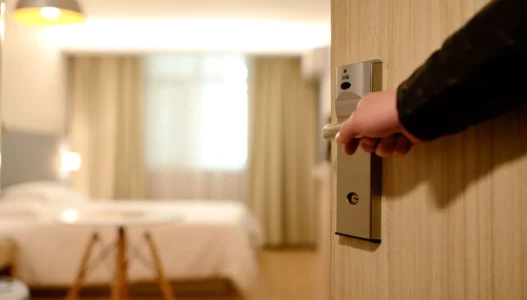In 2007, Brian Chesky and Joe Gebbia founded bed & breakfast (B&B). The cash-strapped duo converted their sitting room to accommodate paying guests in a desperate attempt to make enough money to pay rent. That idea is now worth over $100 billion.
The decision to start Airbnb was a sudden one. And like Brian and Joe, you may be one of those business enthusiasts who make sudden decisions to start hostel businesses. Your reason could be for the extra bucks, because you want to invest in a section of real estate, or because you want another property to your name. Regardless of the reason, you can be sure money is coming your way.
However, like any successful business, it takes hard work, dedication, moving on from costly mistakes, huge capital, and attention to detail to get your hostel on its feet. Many entrepreneurs make mistakes by not giving core considerations to some important tips. In this article these are some of the most important things to know before getting started.
Your Brand Outlook Says Everything About You
The brand outlook you are selling determines the experience people will have in your hostel. You should decide if you are going for the warm and cozy or if you want the outdoor bonding atmosphere. This decision is what determines your decor, brand’s identity, bed types, and even the sofas.
Tune your decor to make guests feel at home. Walking into a hostel that feels warm and friendly is every traveler’s dream. Draft out a plan that complements your brand outlook. You might think it weird to think about decor before starting your business. It’s not.
The soul of hostel renting is the decor, which can range from furniture to outdoor swimming pools. Discard the stiff furniture for ones that give a homely feel. For instance, choose a colorful but moderate furniture set. It will also be nice to use complementing colors in the common room instead of stark white. You can also hire an interior decorator to help with the process.
Great Locations Equal Increased Revenues
Most travelers and guests prioritize a good location. A good spot in town should have certain specifics, such as easy routes to the main roads and proximity to the hotspots — restaurants, clubs, hairdressers, malls, and many more within the town. You must find a good location that will appeal to prospective customers.
Due to the growing competition in this industry, it might be challenging to find a good spot. In this case, you can hire professional agents to secure a great location for your building. While searching, ensure there’s no serious competition in the area, as this could lead to bad business.

Your Financial Plan Is Important
Like every other institution, you must have a sound financial plan for your business. These plans help you create a headway on the necessary steps to take, figure out your needed capital, and decide if you’ll be needing investors or taking out a loan.
You can secure financing means through sponsorships and investments by tendering your plan to potential investors. It also ensures you follow the drawn-out plan without splurging on unnecessary purchases while keeping track of your expected profit and loss.
Permits Are a Pain
Some locations are legally restricted from having a hostel. Check your chosen location’s zoning law to know if you can build your business there. If it is allowed, check the local law to see if there might be clauses that won’t bode well for your business. If it is not, search for areas that allow hostels and get your permits to start building or acquiring.
Permits aren’t as easy as they sound. It takes a long time to get approval from city halls, and when you do, their regular checks are frustrating — they might also ignore your emails if you try to reach out.
Although they might be hard to attain, applying for every necessary permit and license needed to run your business is important. Get all the permits needed, which might come with a fee, to build a completely legal hostel.
How You Market Your Hostel Determines Who Visits
Market your brand to the right audiences. These include solo travelers, young students taking a gap year, and backpackers. You need to create a good online presence to find these people, and the best way to do that is to draw up a strong marketing plan.
However, while drawing one up, be mindful of your finances and avoid over-expensive marketing strategies — you don’t need them to attract your audiences anyway; what they are looking for is originality and a breath of fresh air.
Final Notes
Building a hostel is a lucrative and interesting business. Besides the cool cash that comes with it, you also get to meet different personalities from different parts of the world.
Remember, the goal is to create an environment that makes people want to drop their bags, grab a can of beer, and mingle. We wish you success with the plan!

